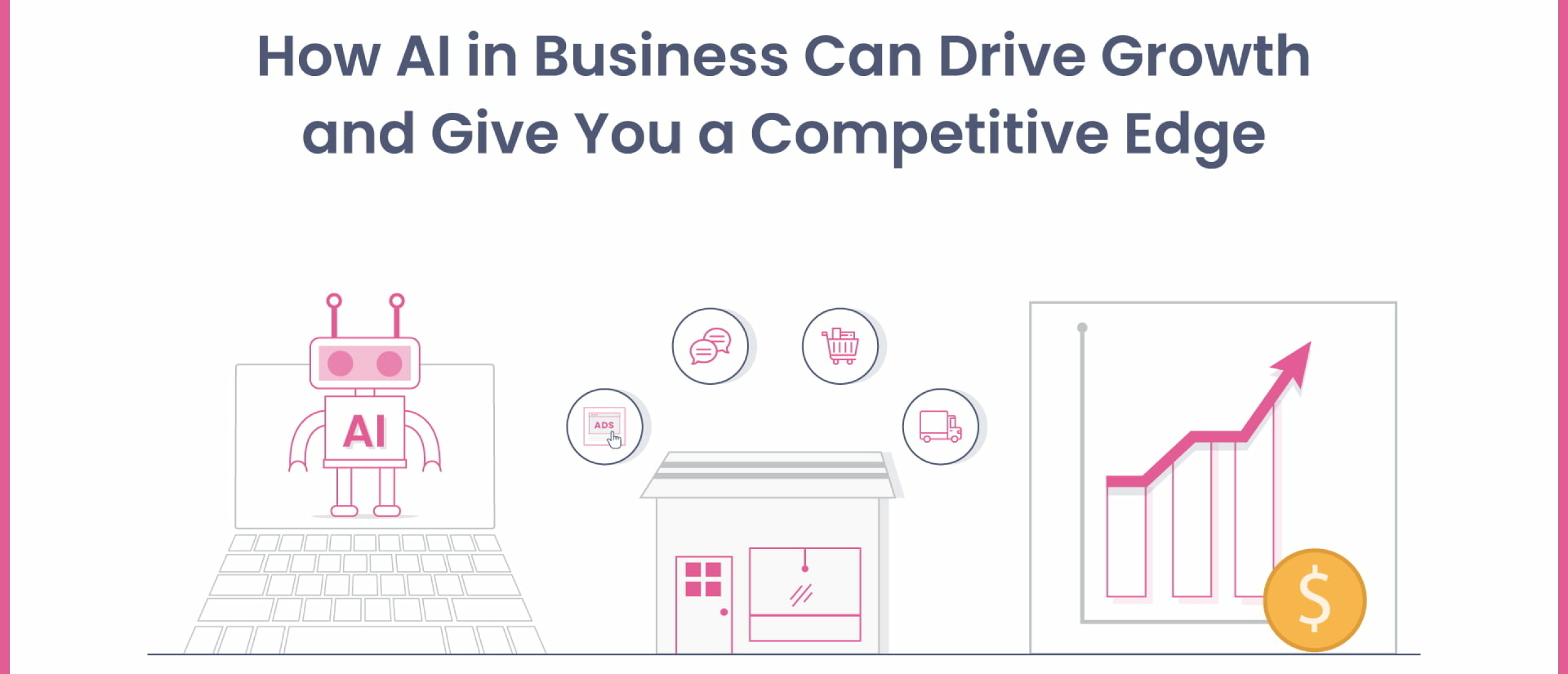Introduction
Definition of AI
Artificial Intelligence (AI) refers to the simulation of human intelligence in machines that are programmed to think and learn like humans. It involves the development of computer systems that can perform tasks that would typically require human intelligence, such as visual perception, speech recognition, decision-making, and problem-solving. AI has the potential to revolutionize businesses by automating processes, improving efficiency, and enhancing decision-making capabilities. By leveraging AI technologies, businesses can gain a competitive advantage, optimize operations, and provide personalized experiences to their customers. However, it is important for businesses to carefully consider the ethical and social implications of AI implementation to ensure responsible and beneficial use.
Benefits of AI in business
Artificial Intelligence (AI) offers numerous benefits for businesses. One of the key advantages is its ability to automate repetitive tasks, freeing up valuable time for employees to focus on more strategic and creative work. AI can also analyze large amounts of data quickly and accurately, providing valuable insights and predictions that can inform business decisions. Additionally, AI-powered chatbots and virtual assistants can improve customer service by providing instant and personalized responses. Overall, integrating AI into business operations can enhance efficiency, productivity, and customer satisfaction.
Overview of AI technologies
AI technologies have revolutionized the way businesses operate. From machine learning algorithms to natural language processing, AI has the potential to automate processes, improve decision-making, and enhance customer experiences. In this article, we will explore the various AI technologies available and how they can be effectively utilized in different industries. Whether you are a small startup or a large corporation, understanding the capabilities and benefits of AI can help you stay competitive in today's rapidly evolving business landscape.
AI Applications in Business
AI in customer service
AI in customer service is revolutionizing the way businesses interact with their customers. With the advancements in natural language processing and machine learning, AI-powered chatbots and virtual assistants are able to understand and respond to customer inquiries in real-time, providing quick and accurate solutions. This not only improves customer satisfaction but also reduces the workload on human customer service agents. Additionally, AI can analyze customer data to identify patterns and trends, allowing businesses to personalize their interactions and provide targeted recommendations. Overall, integrating AI in customer service can enhance efficiency, effectiveness, and customer experience, making it a valuable tool for businesses of all sizes.
AI in marketing and advertising
AI has revolutionized the marketing and advertising industry. With the ability to analyze vast amounts of data and make predictions, AI enables businesses to target their audience more effectively and personalize their marketing campaigns. AI-powered algorithms can identify patterns and trends in consumer behavior, allowing marketers to optimize their strategies and deliver relevant content to the right people at the right time. Additionally, AI can automate various tasks such as ad creation, campaign management, and customer segmentation, saving businesses time and resources. By leveraging AI in marketing and advertising, businesses can gain a competitive edge and drive better results.
AI in data analysis
AI in data analysis has revolutionized the way businesses make sense of their data. With AI-powered algorithms and machine learning techniques, businesses can now analyze large volumes of data in real-time, uncover hidden patterns, and make data-driven decisions. AI in data analysis not only saves time and resources but also provides more accurate and reliable insights, leading to improved business performance and competitive advantage. Whether it's predicting customer behavior, optimizing supply chain operations, or identifying market trends, AI in data analysis has become an indispensable tool for businesses in today's digital age.
Challenges of Implementing AI in Business

Data privacy and security concerns
Data privacy and security concerns are paramount when it comes to incorporating AI into business operations. As AI technology continues to advance, it becomes crucial for organizations to address the potential risks associated with handling large amounts of data. Ensuring data privacy and security not only protects sensitive information but also builds trust with customers and stakeholders. Implementing robust security measures, such as encryption and access controls, can help mitigate the risks and prevent unauthorized access. Additionally, organizations should establish clear data governance policies and procedures to ensure compliance with relevant regulations and guidelines. By prioritizing data privacy and security, businesses can confidently leverage AI to enhance their operations while maintaining the trust of their customers.
Lack of skilled AI professionals
The lack of skilled AI professionals is a significant challenge for businesses looking to implement AI technologies. With the increasing demand for AI-driven solutions, there is a shortage of professionals who have the necessary expertise and knowledge in this field. This shortage not only affects the development and deployment of AI systems but also hinders the ability of businesses to fully leverage the potential of AI. As a result, many companies struggle to find qualified AI professionals to lead their AI initiatives and drive innovation. Addressing this skills gap is crucial for businesses to successfully integrate AI into their operations and stay competitive in today's digital landscape.
Integration with existing systems
Integration with existing systems is a crucial aspect to consider when implementing AI in a business. It is important to ensure that the AI technology seamlessly integrates with the organization's current systems and processes. This integration allows for the efficient exchange of data and information between the AI system and other systems, enabling the AI to make accurate predictions and recommendations based on the available data. By integrating AI with existing systems, businesses can leverage the power of AI to enhance their operations, improve decision-making, and drive innovation.
AI Adoption Strategies

Identifying business needs and goals
Identifying business needs and goals is a crucial step in determining whether AI can be effectively utilized in a business. This process involves evaluating the specific challenges and opportunities that the business is facing and aligning them with the potential benefits that AI technology can offer. By clearly defining the objectives and desired outcomes, businesses can assess whether AI solutions can address their unique requirements and contribute to their overall success. It is important to consider factors such as data availability, resource allocation, and the readiness of the organization to adopt AI technologies. Through a comprehensive analysis of business needs and goals, businesses can make informed decisions about integrating AI into their operations and gain a competitive edge in today's rapidly evolving market.
Evaluating AI solutions
Evaluating AI solutions is a crucial step for businesses looking to leverage the power of artificial intelligence. With the rapid advancements in AI technology, it is important to carefully assess the suitability of different AI solutions for your specific business needs. This involves considering factors such as the accuracy and reliability of the AI algorithms, the scalability and flexibility of the solution, and the compatibility with existing systems and processes. Additionally, it is essential to evaluate the ethical implications and potential risks associated with implementing AI in your business. By thoroughly evaluating AI solutions, businesses can make informed decisions and ensure that they are harnessing the full potential of AI to drive innovation and growth.
Implementing and testing AI systems
Implementing and testing AI systems can be a complex and challenging process, but it can also bring numerous benefits to businesses. One of the key steps in implementing AI systems is to identify the specific business needs and goals that can be addressed through AI technology. This involves conducting a thorough analysis of existing processes and data to determine where AI can be most effectively applied. Once the AI system is implemented, rigorous testing is essential to ensure its accuracy, reliability, and performance. This includes testing the system with real-world data and scenarios to validate its functionality and identify any potential issues or limitations. By successfully implementing and testing AI systems, businesses can unlock new opportunities for automation, optimization, and decision-making, leading to increased efficiency and competitiveness.
Case Studies of Successful AI Implementation

AI-powered chatbots in customer support
AI-powered chatbots have revolutionized customer support in recent years. These intelligent virtual assistants are capable of understanding and responding to customer queries, providing instant solutions and assistance. With AI technology, businesses can offer round-the-clock support, improve response times, and reduce the workload on human agents. AI-powered chatbots also have the ability to learn and adapt, continuously improving their performance and delivering personalized experiences to customers. By leveraging AI in customer support, businesses can enhance customer satisfaction, increase efficiency, and drive growth.
Personalized marketing campaigns using AI
Personalized marketing campaigns using AI can revolutionize the way businesses connect with their customers. By leveraging AI algorithms and machine learning, businesses can analyze customer data to understand their preferences, behaviors, and needs. This enables them to create targeted and customized marketing campaigns that resonate with each individual customer. AI can also automate the process of delivering personalized content and recommendations, ensuring that customers receive relevant and timely information. With AI-powered personalized marketing campaigns, businesses can enhance customer engagement, increase conversion rates, and drive overall business growth.
AI-driven predictive analytics in finance
AI-driven predictive analytics in finance has revolutionized the way businesses make financial decisions. By leveraging advanced algorithms and machine learning techniques, companies are able to analyze large volumes of data and generate accurate predictions about market trends, customer behavior, and investment opportunities. This enables businesses to make informed decisions, mitigate risks, and maximize their financial performance. With AI-powered predictive analytics, organizations can gain a competitive edge in the finance industry and drive growth and profitability.
Future of AI in Business

Emerging AI trends
Artificial Intelligence (AI) is rapidly evolving and has become a game-changer in various industries. As businesses strive to stay ahead in the competitive market, they are increasingly exploring the potential of AI to transform their operations. Emerging AI trends are shaping the future of business by revolutionizing processes, improving decision-making, and enhancing customer experiences. From machine learning algorithms to natural language processing, AI technologies are enabling businesses to automate tasks, gain valuable insights from data, and deliver personalized solutions. As the demand for AI continues to grow, businesses that embrace these emerging trends will have a distinct advantage in driving innovation and achieving success.
Impact of AI on job roles
The rapid advancements in artificial intelligence (AI) have had a significant impact on job roles across various industries. As AI technology continues to evolve, it has the potential to automate repetitive tasks, increase efficiency, and improve productivity. While this can lead to job displacement in certain areas, it also creates new opportunities for individuals to upskill and adapt to the changing landscape. AI can enhance decision-making processes, provide valuable insights through data analysis, and enable businesses to make more informed decisions. Moreover, AI can assist in streamlining operations, reducing costs, and improving customer experiences. Overall, the impact of AI on job roles is a complex and multifaceted issue that requires careful consideration and proactive measures to ensure a smooth transition for both businesses and employees.
Ethical considerations of AI in business
Ethical considerations of AI in business are of utmost importance. As AI becomes more integrated into various industries, it is crucial to address the potential ethical implications it may bring. One major concern is the potential bias in AI algorithms, which can result in discriminatory outcomes. Additionally, the use of AI in decision-making processes raises questions about accountability and transparency. It is essential for businesses to ensure that AI systems are designed and implemented in a way that upholds ethical standards and respects human rights. By proactively addressing these ethical considerations, businesses can harness the power of AI while minimizing potential risks and ensuring a fair and just society.






